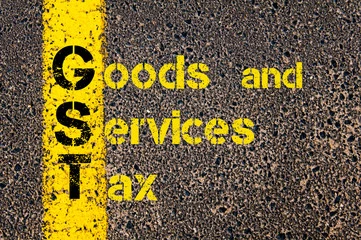Revenue is an important factor both for the States and Centre. After all, it is only the revenue which will allow them to ensure that there priorities are attended to. Development is attained and then the masses who have actually brought in a particular government gets what it is its priority.
Now, GST is a mechanism which does not permit much flexibility to individual parties or individual States instead it is a harmonised policy. In the harmonised policy, it is possible that certain larger priorities are addressed and certain smaller priorities are not attended to.
Similarly, in the collection mechanism it is quite much possible that there are certain taxes which are collected in a particular State but because of lack of development or because of lack of industrialisation the same revenue collection is not collected in another State. What happens?
There is a mechanism which was brought into picture by which both the Centre and States could agree to a particular collection mechanism. But then this collection mechanism could also result in the fact that a particular State does not get as much revenue as it desires.
In that scenario, it was proposed and finally it was agreed as an outcome that there will be an assured revenue growthfor every State. This assured revenue growth was by way of a mechanism. The mechanism was that in the Parliament it was agreed at the time of the passing of the Constitution Amendment Bill itself that the Union will compensate the States for any loss of revenue on account of GST implementation.
The way it has been brought into practice is by way of another law, namely compensation to States.The law which is also enacted by the Parliament upon the advice of GST Council. Now what does that law do. This law states that each State will get the revenue plus at least 14 percent growth year on year from the revenue which it collected last. Therefore what happens is that, if any State is not able to attain the revenue as promised under this law namely, revenue plus 14 percent growth from the past year’s collection, in that case, the Union will come into picture and it will compensate the States.
So basically, this is a mechanism which has been brought into picture by which the collection of the State is assured upto a particular level. And it is for a period of 5 years. Therefore, it is hoped and expected that within this 5 years all the States would be able to come at par and they will be able to implement GST on its own terms without any compensation requirement from the Union.
Traditionally, all the States in India are not at the same level of industrialisation, at the same level of development. Therefore, it is quite possible that there may be revenue in a particular State on account of GST but it is not there in another State for the reason that there may not be same level of consumption, there may not be same level of business activity and there may not be other factors which leads to GST contribution.
In this scenario, a State may be forced to collect taxes by another mechanism outside GST. This will disturb the harmonised structure of GST. For this reason, that is to ensure that the States do not deviate from the common GST design, a mechanism was brought in whereby the States were guaranteed compensation on account of any revenue loss because of GST’s implementation.
Therefore, there is another mechanism by way of a proper parliamentary law under which the States have been assured of compensation if there is any revenue loss on account of GST implementation. In fact, not just revenue loss there is actually a growth in revenue which is promised under this law. There is an assurance of 14 percent of growth of revenue for each State.
In a event, a State is not able to achieve this growth, namely if there is a revenue of 100 last year and there is a revenue of 107 or 108 this year which is less than 100 plus 14 percent then the Union comes into picture.
Whatever is the deficit, will be compensated by the Union to the States. This compensation is administered by the Union under a close supervision of the GST Council which is on a quarterly basis. Therefore, any State which has any loss of revenue or 14 percent growth is not achieved, is compensated by the Union every quarter.

